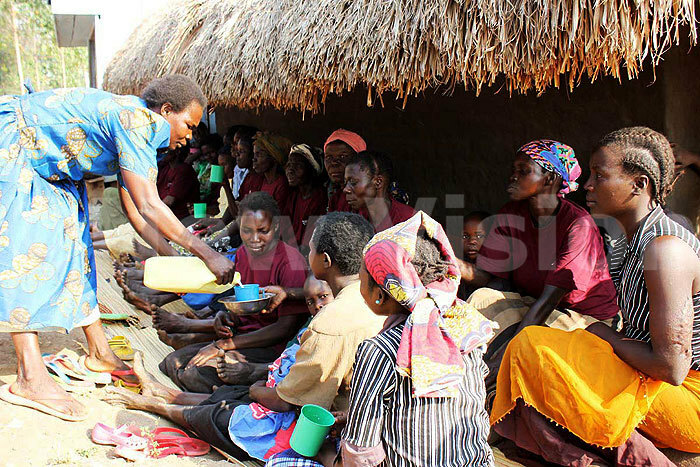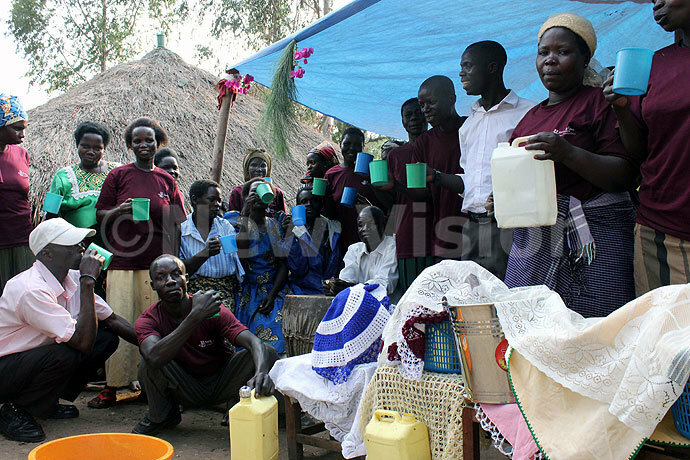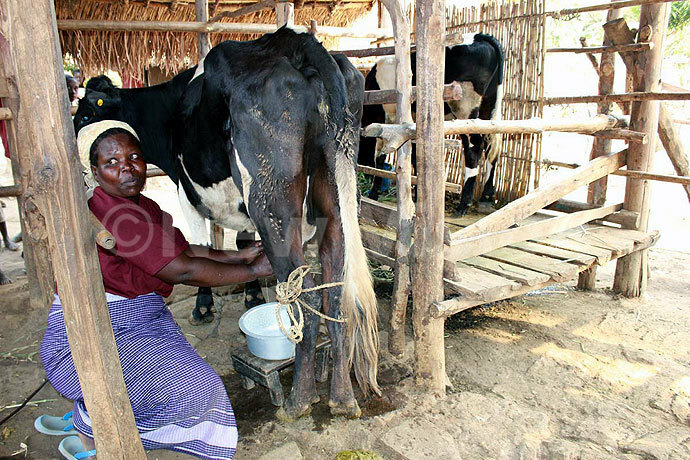The bar where people don't get drunk
May 01, 2016
“Unlike the beer pubs, here one comes and leaves sober."

PEOPLE & PLACES
Stools, mats and tree stumps serve as furniture. You pay sh500 and a warm mug of milk is filled for you. A tarpaulin sheet offers a reluctant shade. There is no age or sex limit when it comes to admission. The miniature pub is at the mercy of rain and sunshine. Welcome to the milk bar of Nebbi.
Fancy a sip or two? You will find this unique Opeto Bedo Ber (sit in peace) bar in a village called Kubi.
"Unlike the beer pubs, here one comes and leaves sober. Cases of wife battering and sexual promiscuity, as a result of drinking milk, are unheard of," says Winniefred Shanifa, who came up with the idea of a milk bar.
After the milk is boiled, every diner is entitled to a spoon of sugar but pays sh100 for every extra. It's not milk tea. Just plain milk.

On seeing a group of men and women, the first impression visitors have is a beer bar or a beef vendor. Boys with their radars on full alert for money-minting opportunities have set up mobile ‘kikomando' (omelette rolled in chapati) and nyama choma (grilled meat) stalls.
For as little as sh2,000, one can walk back to work satisfied. Some diners are seen wolfing a mixed grill of dried maize and beans flavored with palm oil. Here, people call it anyoya.
"This food stays in the stomach until the next day," says Shanifa. "Anyoya is what fishermen and hunters used to eat before going for an expedition."
Meanwhile, Aneco Combe is the chairperson of SACU (Send A Cow Uganda) group in the village. She says the idea of a milk bar was triggered by producing more milk than what the locals consumed. Traditionally milk was a food for children while ‘real' men guzzled kwete, bottled beer and dry gin.
"Men used to go out alone in the evening," reveals Combe. "But here one can come with the entire family.
"There are women with crossbreed cows that produce more than 17 liters of milk per day. This is a lot more than what the children can consume at home."

So the benefactors of SACU pool their milk at Opeto Bedo Ber bar. Each delivery is recorded and paid at the end of the day. What used to go bad is now being consumed or processed into ghee.
"The SACU membership operates in such a way that if we are 30, after the cow calves, the calf is passed on to the next benefactor. As the number of cows increases in the village, the milk bar is a creative market which is pocket-friendly to consumers," says Combe.
"In future, we hope to introduce meals like angara (salted fish) with either cassava or millet bread and potatoes," she adds.
"Visitors to the area love our cuisines like anyoya and sombe. The cuisines are believed to make dancers develop rubbery limbs to dance Soukous [a popular genre of dance music from the Congo Basin]."
The milk bar of nebbi has transformed into a community center of sorts where business ideas are shared, among other things.

Here, Winniefred Shanifa milks her cow
